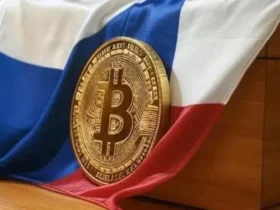An Ethereum address that held almost $31,800,000 in USDT was frozen by the stablecoin’s issuing company, Tether, on November 8.
The freezing of that wallet once again exposed a determining characteristic of the functioning of USDT: Tether’s ability to stop the use of funds when it deems appropriate.


This power, as CriptoNoticias pointed out repeatedly, raises questions about the real autonomy of the currency.
In practice, if a company can prevent the movement of funds at any time, Its operation resembles that of a Central Bank Digital Currency (CBDC).
These state digital currencies allow a government set rules about how to use them. For example, they could block transactions, limit operations or exercise direct supervision over users’ money.
Why is Tether freezing addresses with USDT?
Although Tether did not reveal an official explanation for the freezing of the almost 32 million USDT on November 8, in its website indicates that this practice responds to its cooperation protocol with global institutions:
From time to time, Tether receives requests for information about its customers from security agencies around the world. […] When Tether is contacted, authorities are typically interested in two types of data: information about the identity of customers and information about their activities using Tether Tokens. Additionally, as part of their investigation, authorities may be interested in requesting the freezing of an address.
Tether official site.
In other words, blocking that wallet would be the direct execution of a formal request from a law enforcement or regulatory agency that would be investigating serious crimes (money laundering, terrorism, scams or hacking).
Tether can act on specific addresses because controls the keys that manage the issuance and execution of your smart contractthe computer program that defines how the token works on different networks.
The November 8 episode reinforces the discussion about the role that stablecoins play within the ecosystem. Although they offer parity with the dollar and facilitate fast operations, they also replicate typical control mechanisms of traditional currencies.






Leave a Reply